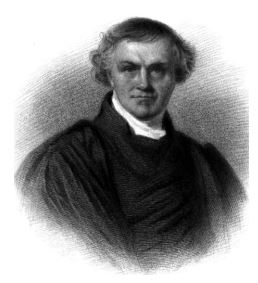 Most words in general use have arisen through natural evolution of the language, often by changing the meanings of existing words or combining words. This is well illustrated by a sentence, contrived by the late Marghanita Laski, that would have been incomprehensible to Jane Austen, even though she would have known every word it contained: “She needed a new face, so she propped up the baby grand and reached for her compact”. No new words were needed to construct that sentence, merely old ones that had accrued new meanings with time.
Most words in general use have arisen through natural evolution of the language, often by changing the meanings of existing words or combining words. This is well illustrated by a sentence, contrived by the late Marghanita Laski, that would have been incomprehensible to Jane Austen, even though she would have known every word it contained: “She needed a new face, so she propped up the baby grand and reached for her compact”. No new words were needed to construct that sentence, merely old ones that had accrued new meanings with time.
Other words are coined to meet particular needs at particular times. Reading articles in the 6000th issue of the Times Literary Supplement recently, I was struck by the number of neologisms, newly coined words or phrases, they mentioned. For example:
- hyperliberalism: an ideology that “aims to purge society of any trace of other views of the world”;
- whitelash: economic grievances of poor white Americans;
- misogynoir: misogyny directed specifically at women of colour;
- banthology: an anthology of stories by writers from “unwanted nations”, those banned from America by Donald Trump;
- himpathy: sympathy for a man who has abused women.
It may be a coincidence that all of these neologisms have been formed by adding to or corrupting existing words, respectively liberalism, backlash, misogyny, anthology, and sympathy. The last is an example of a feminist trope—the punning subversion of gender specific elements; history becomes herstory or hystery, bimbo and bimbette become himbo and himbette, hero becomes hera and she-ro, manifesto becomes womanifesto, menstruate becomes femstruate, a master’s degree becomes a spinster’s degree.
Neologisms enter English all the time, and some of them can be attributed to identifiable individuals. Here are a few examples:
Meta-analysis Coined by Gene Glass in his presidential address to the American Educational Research Association in San Francisco on 21 April 1976 to refer to analysis of analyses, the prefix “meta-” having come to be used to indicate a concern with basic principles. “The term,” Glass wrote, “is a bit grand, but it is precise and apt.”
Nutraceutical Invented in 1989, from “nutrition” + “pharmaceutical”, by Stephen L Defelice, who established The Foundation for Innovation in Medicine in 1976. However, there is no internationally agreed definition of “nutraceutical”, and I have elsewhere concluded that the term is vague, non-discriminatory, and unhelpful, and that the evidence suggests that it should be abandoned.
 Scientist In an article in the Quarterly Review 1834, reviewing a book called On the Connexion of the Physical Sciences by Mrs Somerville, William Whewell (pictured) referred to the “want of any name by which we can designate the students of the knowledge of the material world collectively. We are informed that this difficulty was felt very oppressively by the members of the British Association for the Advancement of Science, at their meetings … in the last three summers. … Philosophers was felt to be too wide and too lofty a term, … savans was rather assuming, [but] some ingenious gentleman proposed that, by analogy with artist, they might form scientist.” The “ingenious gentleman” was Whewell himself.
Scientist In an article in the Quarterly Review 1834, reviewing a book called On the Connexion of the Physical Sciences by Mrs Somerville, William Whewell (pictured) referred to the “want of any name by which we can designate the students of the knowledge of the material world collectively. We are informed that this difficulty was felt very oppressively by the members of the British Association for the Advancement of Science, at their meetings … in the last three summers. … Philosophers was felt to be too wide and too lofty a term, … savans was rather assuming, [but] some ingenious gentleman proposed that, by analogy with artist, they might form scientist.” The “ingenious gentleman” was Whewell himself.
Apoptosis In 1972 Kerr, Wyllie, and Currie reported a phenomenon that they described as “controlled cell deletion”, for which they proposed the name “apoptosis”, as they explained:
“The word “apoptosis” (ἁπόπτωσισ) is used in Greek to describe the “dropping off” or “falling off” of petals from flowers, or leaves from trees. To show the derivation clearly, we propose that the stress should be on the penultimate syllable, the second half of the word being pronounced like “ptosis” (with the “p” silent), which comes from the same root “to fall” and is already used to describe drooping of the upper eyelid.”
As I have explained in a previous blog, this footnoted statement contains two spelling errors and an incorrect assumption about pronunciation. Neologising is not always simple.
Jeffrey Aronson is a clinical pharmacologist, working in the Centre for Evidence Based Medicine in Oxford’s Nuffield Department of Primary Care Health Sciences. He is also president emeritus of the British Pharmacological Society.
Competing interests: None declared.
